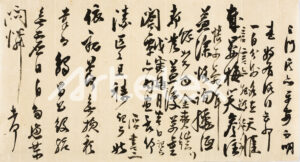Kim Seok-jin (1843–1910) was a civil official during the late Joseon Dynasty, belonging to the Sin Andong Kim clan.
Born in 1843, he pursued academic studies from a young age and passed the state examination (gwageo) in 1860, thus beginning his government service.
Throughout his career, he held various high-ranking positions, including Chief Scholar of the Sungkyunkwan in 1876 (13th year of King Gojong’s reign), Minister of Justice in 1890 (27th year), Special Advisor to the Royal Household in 1896 (33rd year), Secretary of the Royal Secretariat in 1898 (35th year), Special Advisor and Head of the Board of Ceremonies in 1899 (36th year), Special Advisor and member of the Nobility Council, as well as Chief of the Office for Protocol Affairs in 1900 (37th year). He later served as Chief of the Board of Ceremonies, Special Advisor to the Royal Household, and Head of the Office for Protocol Affairs until 1905.
In 1906, Kim openly criticized the Eulsa Five Traitors, submitting a petition for the dismissal of the official in charge of Uihyojeon Shrine, although it was not granted. Following the annexation of Korea by Japan in 1910, Kim was offered the title of baron in the Japanese peerage but refused the honor. Shortly afterward, he took his own life by consuming poison.
In recognition of his patriotic resistance, Kim Seok-jin was posthumously awarded the Order of Merit for National Foundation by the South Korean government in 1962.

